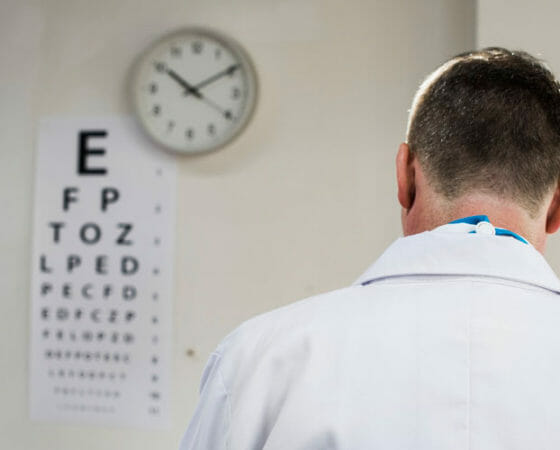Protecting Your Eyesight as You Age
Getting old, as the saying goes, isn’t for the faint of heart. And, of all the things that happen to us as we get older, they also say that eyesight is the first to go. Whether or not that’s true, some diminished visual acuity as we age is just a fact of life for most if not all people. But, there are many things you can do to ward off potential age-related eye issues.
In this post, we’ll talk about the importance of making regular trips to your eye doctor. We’ll go over some of the major issues and vision problems you may face as you approach retirement age, and we’ll investigate what options you may have to ward off these issues.
Annual Eye Exams
You’ve probably heard somewhere that getting your eyes checked somewhat regularly is important. But, if you’ve never had any issues with your vision, you may not realize just how important it really is. Yes, an optometrist can examine your eyes, helping you to find a solution to blurred near vision, lack of distance vision and other problems.
But an eye doctor actually does much more than this during a routine eye examination. Often optometrists serve as the first line of defense, not only for eye-related problems, but also for issues that are more systemic in nature and affect much more than just your eyesight.
For these reasons, it is very important that you visit an optometrist once a year for an exam, especially as you get older.
Potential Age-Related Eye Issues
Not everyone experiences issues with their eyesight as they get older. But for some, serious eye conditions arise as they age. Here are a few of the common issues that you may encounter as you move through middle age and into your elder years:
- Age-Related Macular Degeneration
Age-related macular degeneration or AMD, is a condition that affects your ability to see things clearly, especially at the center of your field of vision. While there is no cure for AMD, some research has indicated that it can be slowed by taking certain vitamins and supplements.
- Cataracts
Cataract is a condition characterized by a clouding of the lens of the eye. Cataracts will lead to blurry or blocked vision, and are caused by aging; they affect as much as half of all elderly people and can often be treated with surgery.
- Glaucoma
Glaucoma is a very common condition that affects the optic nerve and compromises peripheral vision in those experiencing it. It can be treated with eye drops, if they are taken according to an optometrist’s directions.
Changes to Vision Are a Natural Part of Aging
Once you hit your forties, you are bound to notice some changes in your vision. For starters, you will begin to have less ability to distinguish subtle differences in colors. You may need corrective lenses to help you see up close. And, you may have some problems adjusting to glare that you did not have as a younger person.
Beyond these issues exists a host of potential eye problems and other health issues that express themselves through changes in your eyes. An annual visit to an optometrist is your best defense when it comes to protecting your sight.

